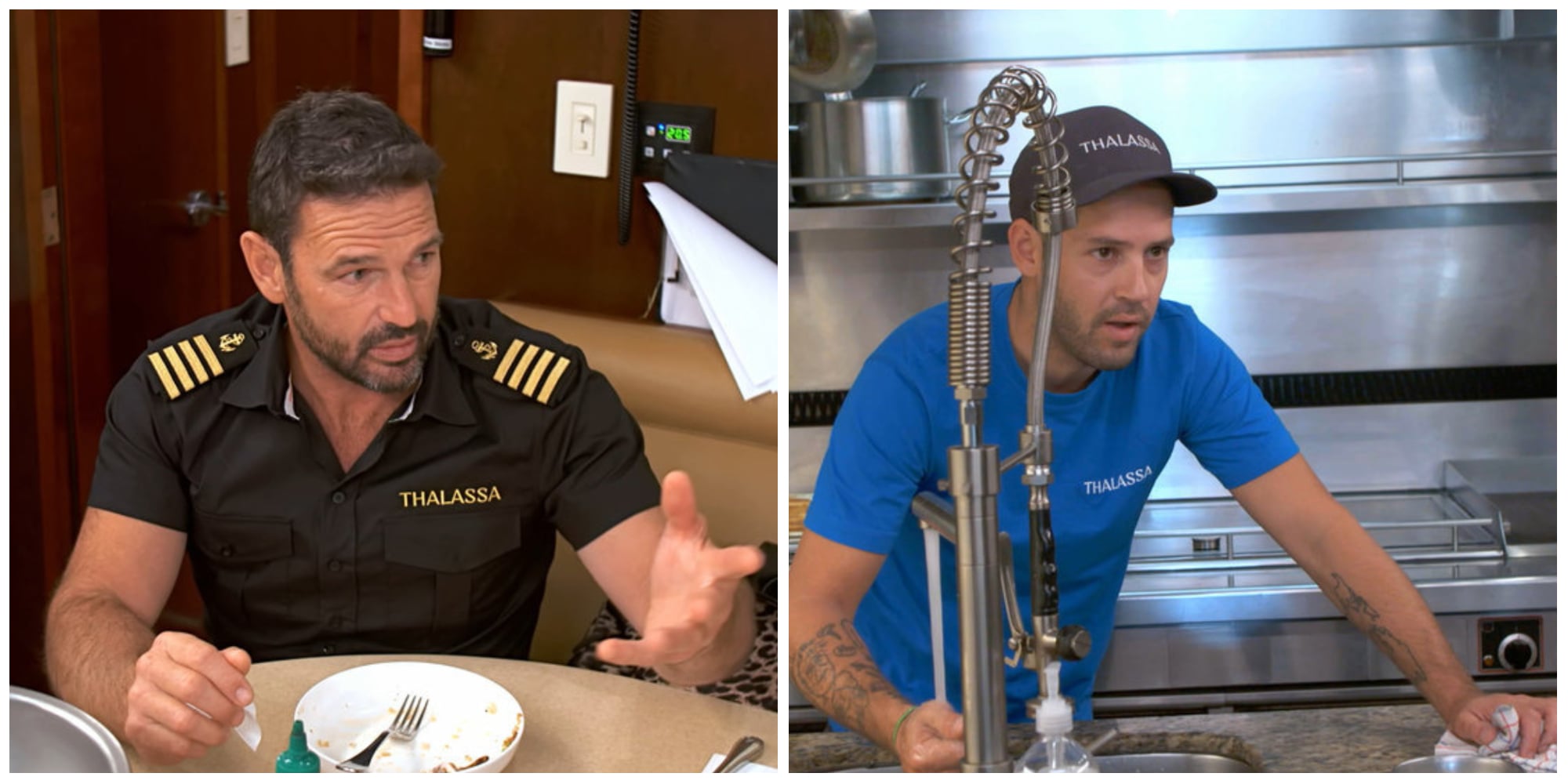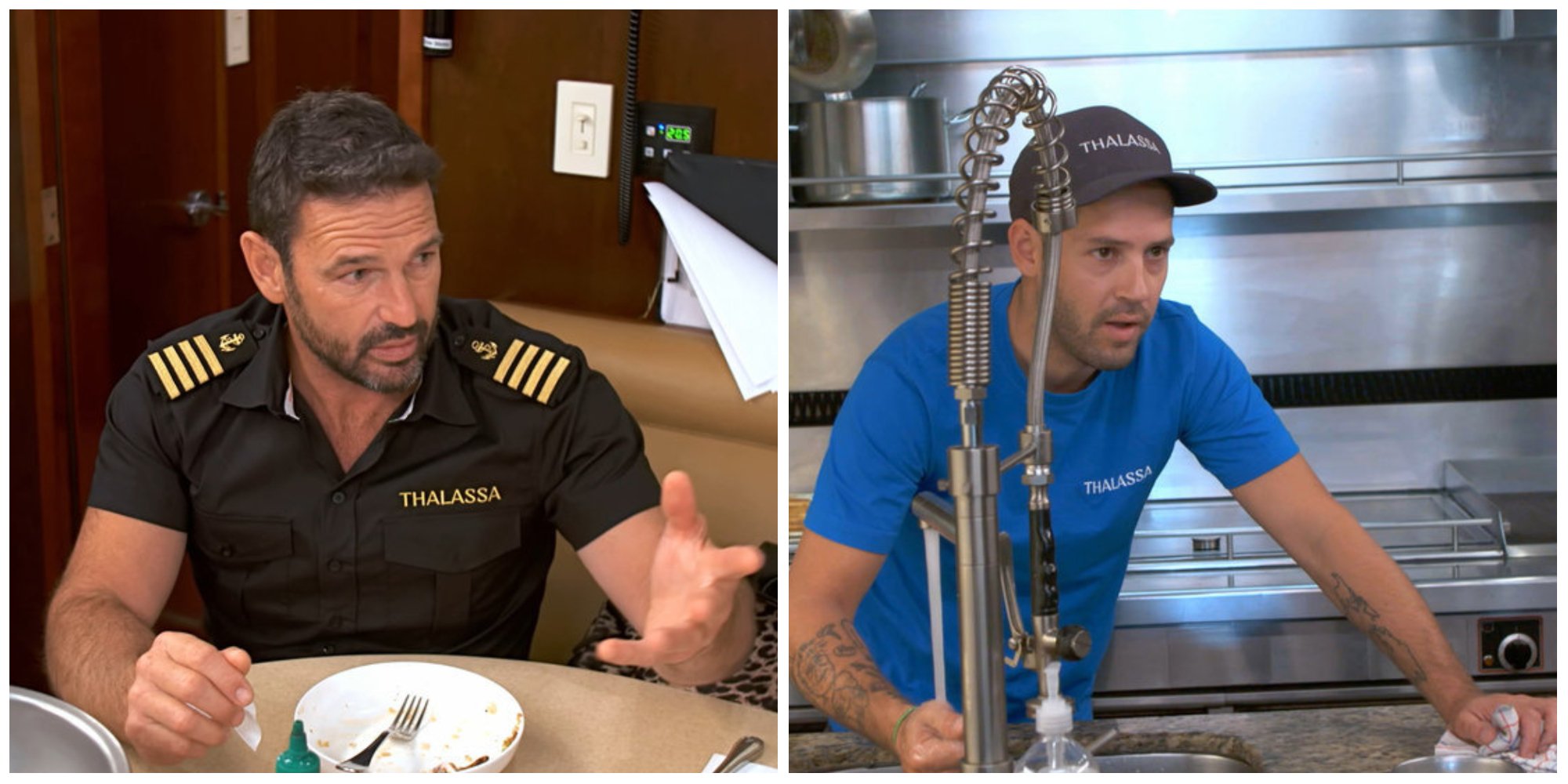
Captain Jason Hovered Over Chef Ryan on ‘Below Deck Down Under’ – Why Do Captains Stress so Much Over the Chef?
Captain Jason Chambers did what most superyacht captains would do with a problematic chef on Below Deck Down Under. Chambers tried to motivate chef Ryan McKeown to improve his dishes and when McKeown ultimately didn’t deliver, Chambers fired him.
McKeown recently said he essentially “gave up” after the third charter. Plus he had close to no communication with chief stew Aesha Scott. This meant that Chambers had to spend a good amount of time monitoring McKeown’s work and behavior.
McKeown isn’t the first Below Deck chef to be on the captain’s radar. Chef Mila Kolomeitseva and Hindrigo “Kiko” Lorran gave Captain Sandy Yawn anxiety on Below Deck Mediterranean. Chambers explained that the chef has a “make or break” type role on the boat. Plus, crew members have said if the chef’s food is bad, the tip is usually bad.
Captain Jason said he tried to facilitate communication between chef and chief stew on ‘Below Deck Down Under’
Chambers requested that McKeown put more thought into the food presentation, telling him he wanted to see Instagram food. Chambers told Showbiz Cheat Sheet he keeps in mind the pressure on yacht chefs. And that he tried to improve communication between McKeown and Scott.

“That impression on the chef is pretty massive,” he remarked. “A lot falls on their shoulders to be successful for the charter. Any charter in the industry. However, it’s essential that the communication between the interior and the galley is 100%. You’ll find in the first episode that there’s a barrier already, and we had to try and reduce that defense mechanism and try to more of an open conversation so the two departments could function.”
Obviously, Below Deck Down Under fans are seeing how McKeown and Scott couldn’t get into a groove and the food and service suffered.
‘Below Deck’ Chef Ben said the yacht chef has the hardest gig on the boat
Personality clashes aside, chef Ben Robinson, who starred as the superyacht chef on both Below Deck Med and Below Deck said the job is incredibly difficult.
“It’s the hardest job there is,” Robinson admitted when he returned to Below Deck Med Season 4 in the Below Deck Med After Show. “Because you are on your own and you are in charge of provisioning, budgeting, It’s a tiny little space, you have no help.”
“I’m not attributing the failures of the other two chefs either,” Robinson said about Kolomeitseva and Anastasia Survama who stepped in temporarily after Kolomeitseva was fired. “A good chef will be able to rise above it. But it’s tough. It’s a tough gig.”
While the gig is tough, yacht chefs can make serious bank. Captain Lee Rosbach from Below Deck revealed many yacht chefs can make up to $10,000 per month.
If the chef is bad, usually the tip is bad
Many Below Deck crews observed that if the food is bad, the tip will suffer. Below Deck Sailing Yacht charter guests Erica Rose and husband Charles Sanders claimed that the food wasn’t what they hoped for, which is why they left one of the worst tips in the history of the show. Of course, no other guests that season complained and chef Marcos Spaziani has been heralded as one of the best chefs on Below Deck.
Surmava offered some insight into what yacht chefs are up against. “The huge thing is you don’t have a team,” Surmava told Showbiz Cheat Sheet. “You’re completely by yourself and you don’t have your bussers and dishwashers and your pastry chef. You don’t have any support, really. On the bigger yachts, you may have a sous chef and a crew chef. But generally, you don’t.”
Also, “You are one person trying to cook everything to the correct temperature and then you’ve got to keep it hot,” she said. “And then you have to plate it to this high-end status. All that takes a lot of time. And then you’re thinking, ‘I still have my desserts to think about, I have this to think about it.’ It’s a lot.”
Adding, “I think it’s hard for people to grasp how much work it is for one person,” Surmava recalled. “That on top of working 16 to 18 hours every day. By the end, you’re just a broken human being.”


